第43章 CHAPTER VII(5)
He was a sallow, sickly-looking man, who with a large bony frame had been reduced from constant hard work and frequent sickness to little but skin and sinew; he was a mason, who had left Germany with the Austrian Mission to Khartoum, but finding the work too laborious in such a climate, he and a friend, who was a carpenter, had declared for independence, and they had left the Mission.
They were both enterprising fellows, and sportsmen; therefore they had purchased rifles and ammunition, and had commenced life as hunters; at the same time they employed their leisure hours in earning money by the work of their hands in various ways.
Florian, being a stonemason, had of course built his hut of stone; he was a fair blacksmith and carpenter, and was well provided with tools; but his principal occupation was whipmaking, from the hides of hippopotami. As coorbatches were required throughout the country there was an extensive demand for his camel-whips, which were far superior to those of native manufacture; these he sold to the Arabs at about two shillings each. He had lately met with a serious accident by the bursting of one of the wretched guns that formed his sporting battery;this had blown away his thumb from the wrist joint, and had so shattered his hand that it would most likely have suffered amputation had he enjoyed the advantage of European surgical assistance; but with the simple aid of his young black lad, Richarn, who cut off the dangling thumb and flesh with his knife, he had preserved his hand, minus one portion.
Florian had had considerable experience in some parts of the country that I was about to visit, and he gave me much valuable information that was of great assistance in directing my first operations. The close of the rainy season would be about the middle of September, but travelling would be impossible until November, as the fly would not quit the country until the grass should become dry; therefore the Arabs would not return with their camels until that period.
It appeared that this peculiar fly, which tortured all domestic animals, invaded the country shortly after the commencement of the rains, when the grass was about two feet high; a few had already been seen, but Sofi was a favoured spot that was generally exempt from this plague, which clung more particularly to the flat and rich table lands, where the quality of grass was totally different to that produced upon the pebbly and denuded soil of the sandstone slopes of the valley. The grass of the slopes was exceedingly fine, and would not exceed a height of about two feet, while that of the table lands would exceed nine feet, and become impassable, until sufficiently dry to be cleared by fire. In November, the entire country would become a vast prairie of dried straw, the burning of which would then render travelling and hunting possible.
Florian had hunted for some distance along the Settite river with his companions, and had killed fifty-three hippopotami during the last season. I therefore agreed that he should accompany me until I should have sufficiently explored that river, after which Iproposed to examine the rivers Salaam and Angrab, of which great tributaries of the Atbara nothing definite was known, except that they joined that river about fifty miles south of Sofi.
Florian described the country as very healthy during the dry season, but extremely dangerous during the rains, especially in the month of October, when, on the cessation of rain, the sun evaporated the moisture from the sodden ground and rank vegetation. I accordingly determined to arrange our winter quarters as comfortably as possible at Sofi for three months, during which holiday I should have ample time for gaining information and completing my arrangements for the future.
Violent storms were now of daily occurrence; they had first commenced at about 2 P.M., but they had gradually altered the hour of their arrival to between 3 and 4. This night, 29th July, we were visited at about 11 P.M. with the most tremendous tempest that we had yet experienced, which lasted until the morning.
Fortunately the tent was well secured with four powerful storm-ropes fastened from the top of the pole, and pinned about twenty-five yards from the base to iron bars driven deep into the hard ground; but the night was passed in the discomforts of a deluge that, driven by the hurricane, swept through the tent, which threatened every minute to desert us in shreds. On the following morning the storm had passed away, and the small tent had done likewise, having been blown down and carried many yards from the spot where it had been pitched. Mahomet, who was the occupant, had found himself suddenly enveloped in wet canvas, from which he had emerged like a frog in the storm. There was no time to be lost in completing my permanent camp; I therefore sent for the sheik of the village, and proceeded to purchase a house.
I accompanied him through the narrow lanes of Sofi, and was quickly shown a remarkably neat house, which I succeeded in purchasing from the owner for the sum of ten piastres (two shillings). This did not seem an extravagant outlay for a neat dwelling with a sound roof; neither were there any legal expenses in the form of conveyance, as in that happy and practical land the simple form of conveyance is the transportation of the house (the roof) upon the shoulders of about thirty men, and thus it is conveyed to any spot that the purchaser may consider desirable.